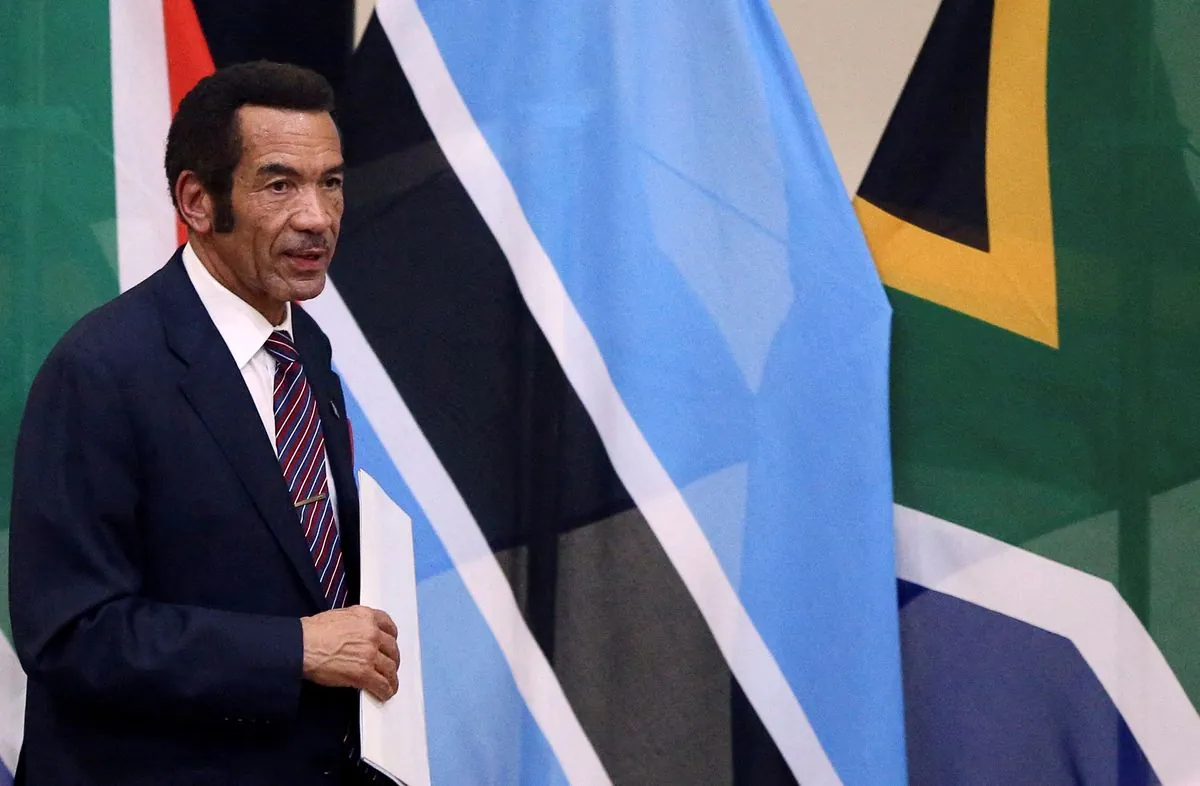In a significant development in Botswana's political landscape, Ian Khama, the country's former president, made a court appearance on September 13, 2024, to address charges related to illegal firearm possession and receiving stolen property. This event marks a crucial moment in Botswana's history, a nation known for its stability and democratic traditions since gaining independence from Britain in 1966.
Khama, son of Botswana's founding president Seretse Khama, returned to his homeland after spending three years in exile, primarily in neighboring South Africa. His return coincides with the approach of a national election scheduled for October 30, 2024, adding a layer of political intrigue to the proceedings.
The charges against Khama include unlawful possession of a firearm, receiving stolen property, and falsely procuring firearm registration. The former president has consistently denied these allegations, asserting that they are politically motivated. This case unfolds against the backdrop of Botswana's complex political dynamics, with Khama having left the ruling Botswana Democratic Party in 2019 due to disagreements with his successor, President Mokgweetsi Masisi.
Botswana, a country of approximately 2.4 million people as of 2024, has long been regarded as one of Africa's most stable nations. It has successfully transitioned from one of the world's poorest countries at independence to an upper-middle-income economy, largely due to its thriving diamond mining industry. However, the current political tensions highlight the challenges faced even by countries with strong democratic foundations.
During the court proceedings, the magistrate suspended two arrest warrants issued against Khama for his failure to appear in court in April 2022. This decision allows the legal process to move forward, with Khama's next court appearance scheduled for September 23, 2024.
The case against Khama is unfolding in Gaborone, the capital city founded in 1964, just two years before the country's independence. Gaborone serves as the political and economic heart of Botswana, a nation that has managed to leverage its natural resources, particularly diamonds, to fuel economic growth. However, the country still faces significant challenges, including one of the world's highest HIV/AIDS prevalence rates.
As Botswana approaches its national election, the political landscape is charged with anticipation. Khama's support for the opposition Botswana Patriotic Front adds another dimension to the electoral contest. The upcoming vote will be a test of Botswana's democratic institutions and the will of its people.
This legal and political drama is playing out against the backdrop of Botswana's unique natural heritage. The country is home to the world's largest elephant population and the magnificent Okavango Delta, a UNESCO World Heritage site. These natural wonders contribute to Botswana's growing tourism sector, diversifying an economy traditionally reliant on diamond exports.
As the case progresses, it will undoubtedly attract attention both domestically and internationally. Botswana's reputation as a beacon of democracy in Africa is at stake, and the outcome of this case, as well as the upcoming election, will be closely watched by observers around the world.
"These allegations are politically motivated and without merit. I have always acted in the best interests of Botswana and its people."
The unfolding events serve as a reminder of the delicate balance between political power, legal accountability, and democratic principles in even the most stable of African nations. As Botswana navigates this challenging period, its commitment to the rule of law and democratic governance will be put to the test.
